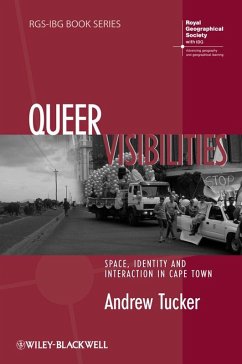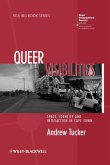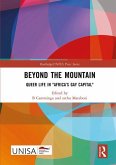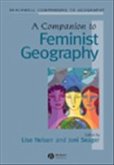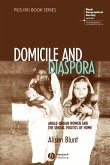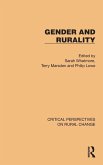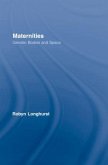Queer Visibilities explores the gap between liberal South African law and the more dangerous reality for groups of queer men living in Cape Town. By examining the lives of queer men among the three major 'race' groups in Cape Town - whites, coloureds and black Africans - this illuminating new study shows how changes in South African law remain marginal to vast numbers of the city's queers. The text also explores the inextricable links between the regulation and expression of queer sexualities and the histories of racial classification in the country. It argues that Western notions of 'the closet' fail to account for important distinctions between men who at times inhabit vastly different social worlds. Such distinctions, however, must be uncovered if the needs and wishes of diverse communities are to be understood. Queer Visibilities combines the most up-to-date theoretical arguments with extensive new field research to shed light on some important failures of the New South Africa - including the many hardships faced by black African queer men in the Cape Town townships and a 'forgotten HIV epidemic' caused by lingering homophobia and ignorance. This important new book contributes valuable insights into the study of human sexuality and reveals how sexual discrimination remains a challenge that must be overcome for the true spirit of reconciliation to be realised in South African society.
Hinweis: Dieser Artikel kann nur an eine deutsche Lieferadresse ausgeliefert werden.
Hinweis: Dieser Artikel kann nur an eine deutsche Lieferadresse ausgeliefert werden.
"Queer Visibilities is a much-needed intervention in thegeographies of sexualities. Drawing upon extensive ethnographic andarchival work, it provides a theoretically sophisticatedexamination of the interconnected politics of class and race in theproduction of sexualised space within contemporary CapeTown."
-Jon Binnie, Manchester Metropolitan University
"How can we understand the closet if we do not understand ourvisibilities? Tucker has provided an impressive study driven byintellectual parley between geography, queer theory, postcolonialand development studies. This book adds to the already powerfulqueer geographies on a fascinating place as well as to debatesaround queer globalisations."
-Michael Brown, University of Washington
-Jon Binnie, Manchester Metropolitan University
"How can we understand the closet if we do not understand ourvisibilities? Tucker has provided an impressive study driven byintellectual parley between geography, queer theory, postcolonialand development studies. This book adds to the already powerfulqueer geographies on a fascinating place as well as to debatesaround queer globalisations."
-Michael Brown, University of Washington

